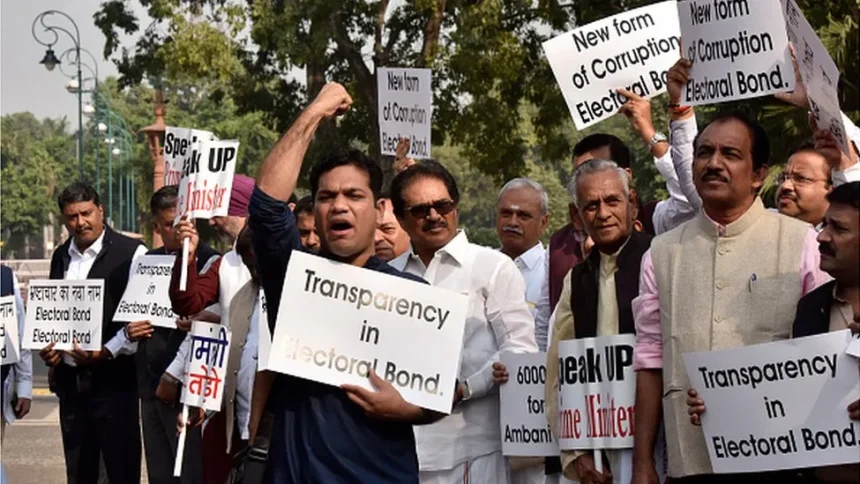In an effort to increase transparency in political fundraising, the government of Prime Minister Narendra Modi introduced electoral bonds in 2018.
However, detractors claim it has had the opposite effect and increased process ambiguity.
The majority of the money came through the bonds and were given to Mr. Modi’s Bharatiya Janata Party (BJP).
The plan was contested as a “distortion of democracy” before the Supreme Court.
A five-judge constitution bench decided on Thursday that citizens’ rights to access government-held information are violated by election bonds.
The Right to Information (RTI) statute is “not confined to state affairs but also includes information necessary for participatory democracy,” according to Chief Justice of India DY Chandrachud.
“Political parties are relevant units in the electoral process and information about funding of political parties is essential for electoral choices,” he stated.
The government-run State Bank of India (SBI) was ordered by the court to stop issuing these bonds, reveal the identities of people who purchased them, and supply the Election Commission with information on any bonds that each political party has redeemed within a week.
Additionally, it noted that there were other initiatives to reduce the use of cash or “black money” than electoral bonds and requested that the government look into them.







